From the Chicago Reader (March 22, 1991). — J.R.
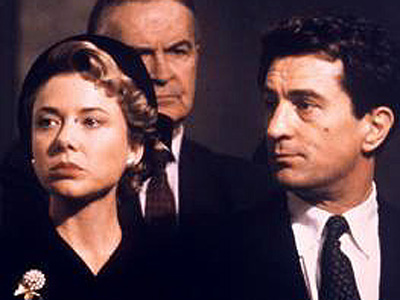
GUILTY BY SUSPICION
*** (A must-see)
Directed and written by Irwin Winkler
With Robert De Niro, Annette Bening, George Wendt, Patricia Wettig, Sam Wanamaker, Barry Primus, Gailard Sartain, Chris Cooper, Ben Piazza, and Martin Scorsese.
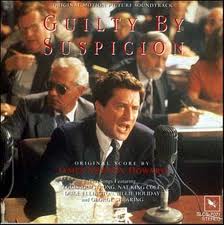
There are plenty of bones one can pick with Guilty by Suspicion, the first Hollywood feature devoted in its entirety to the film-industry blacklist (The Front dealt with TV). Of course there are plenty of bones one can pick with just about any movie, if one is so inclined. But critics, at least, seem more inclined to be so inclined with movies that deal with political subjects. This is not to say that most critics reprove such movies on political grounds; on the contrary, they usually harp on other aspects. But one still winds up feeling that it’s frequently the politics that gets their hackles up.
Having seen this movie more than a week later than most of my colleagues, due to some interesting circumstances that I’ll discuss later, I’ve had ample opportunity to read and (more often) hear some of their carping, most of it hyperbolic invective about the acting and directing. Some of them have expressed so much antipathy for the picture that I went to the first screening at Webster Place last weekend expecting the worst. Read more
From the August 17, 2001 Chicago Reader. –J.R.
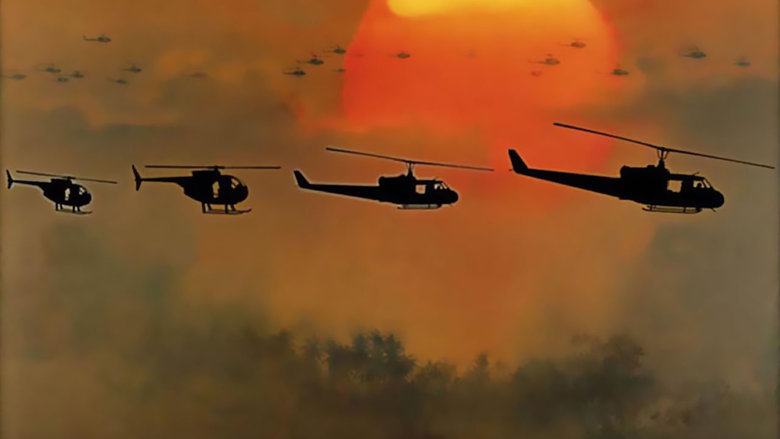
Apocalypse Now Redux
Rating *** A must see
Directed by Francis Ford Coppola
Written by John Milius and Coppola
With Martin Sheen, Marlon Brando, Robert Duvall, Frederic Forrest, Albert Hall, Sam Bottoms, Laurence Fishburne, Dennis Hopper, G.D. Spradlin, Harrison Ford, Colleen Camp, Cynthia Wood, Christian Marquand, and Aurore Clement.
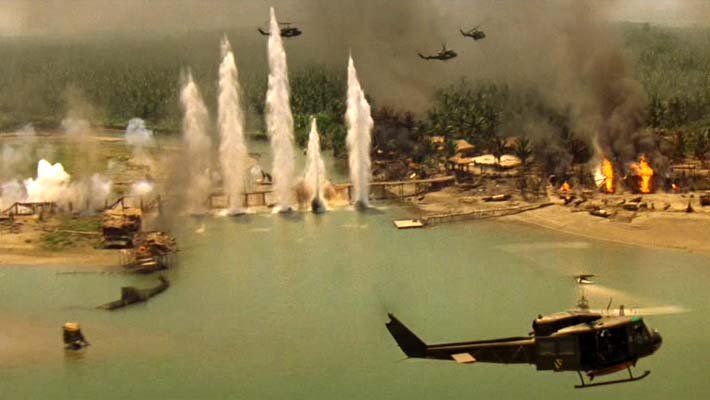
It’s hard to think of many movies where the great, the not so great, and the simply awful coexist quite as brazenly as they do in Apocalypse Now. This was true in 1979, when the movie clocked in at 150 minutes, and it’s true 22 years later, when the new version, Apocalypse Now Redux, runs a third longer.
If anything, the longer version — not so much a rethinking of the material as an expansion, with a minimum of reshuffling, by the adept Walter Murch, who also worked on the original — is better and worse, emphasizing both the ambitious scope and the fatal flaws of Francis Ford Coppola’s achievement. Among the more substantial additions are a ghostly sequence set on a French plantation (featuring Aurore Clement and the late Christian Marquand) that tries, with mixed results, to poeticize the futility of outsiders, French or American, getting involved in the Vietnam war and a silly and rather inconclusive sequence involving a couple of Playboy Playmates (Cynthia Wood and Colleen Camp) that adds nothing. Read more
From the Chicago Reader (February 15, 1991). — J.R.
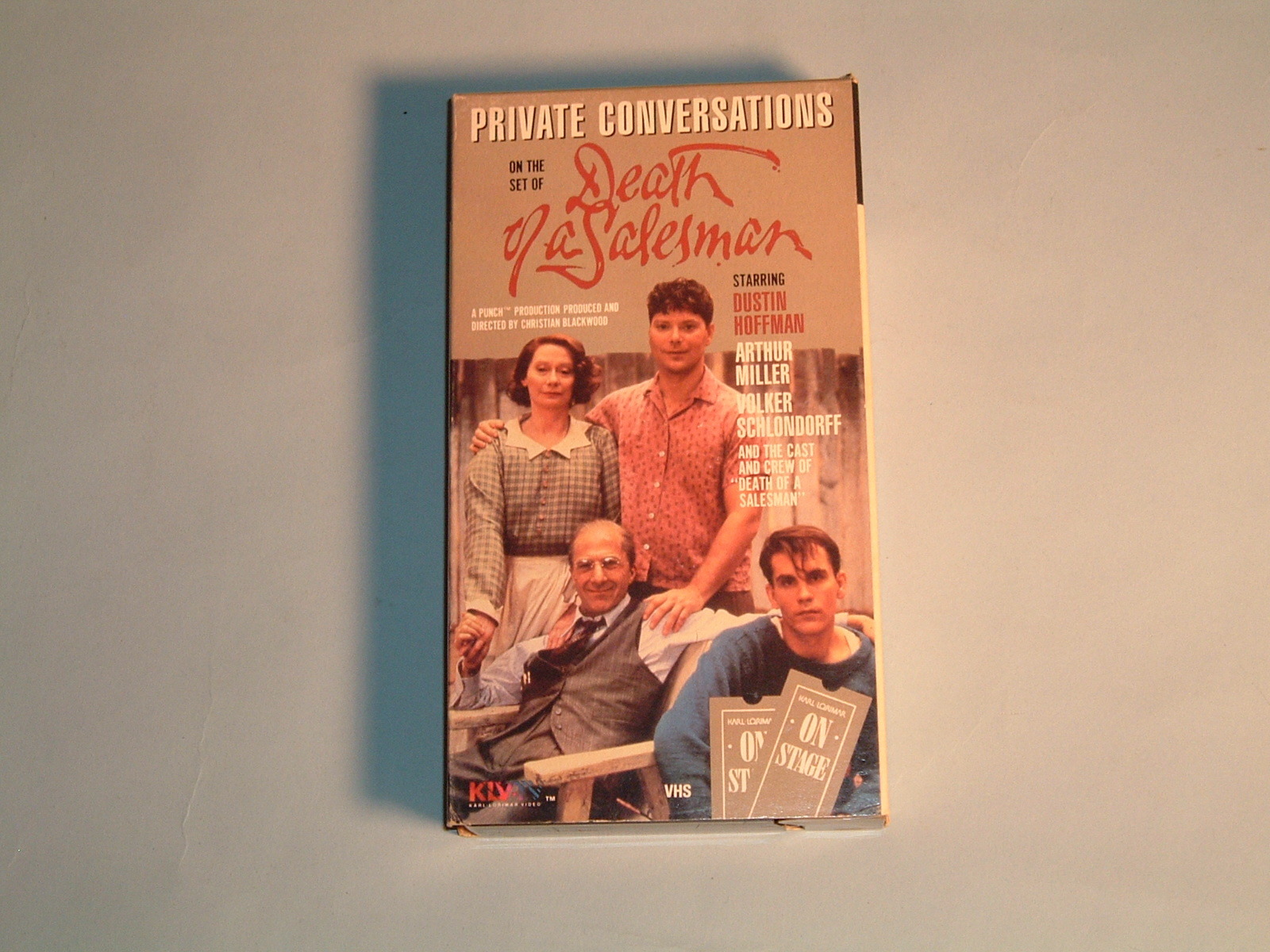
PRIVATE CONVERSATIONS: ON THE SET OF DEATH OF A SALESMAN
*** (A must-see)
Directed by Christian Blackwood.
I’ve never seen Volker Schlondorff’s 150-minute made-for-TV film of Death of a Salesman (1985), which Leonard Maltin’s TV Movies awards high marks: “Stunning though stylistic remounting of [Dustin] Hoffman’s Broadway revival of the classic Arthur Miller play with most of the cast from that 1984 production. A landmark of its type. Executive-produced by Hoffman and Miller. Hoffman and [John] Malkovich both won acting Emmys. Above average.” But a friend who has seen it, and who loves the play, tells me that she disliked the film: all the actors seemed to be off on their own tangents, she said, and there was little interplay between them.
Whether the Schlondorff film is good or bad, Private Conversations: On the Set of Death of a Salesman, the 82-minute documentary that Christian Blackwood made about the making of it, is endlessly fascinating, for reasons largely irrelevant to the worth of the Miller play or this particular production of it. Part of the open-endedness of Blackwood’s film comes from the fact that if Schlondorff’s film works the reasons are here, and if it doesn’t work the reasons are here — perhaps in the same circumstances. Read more





